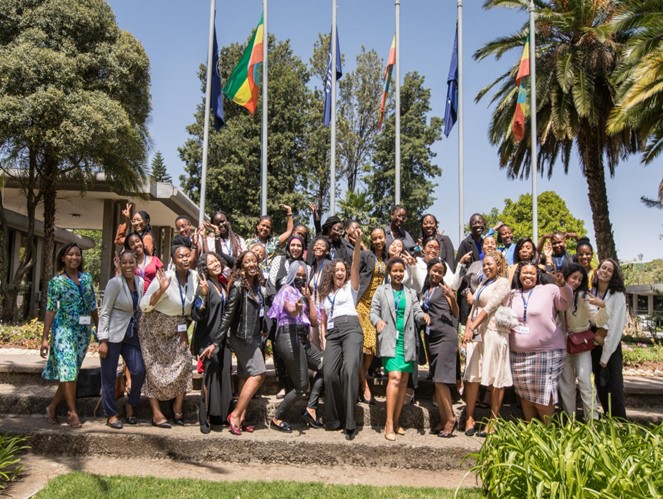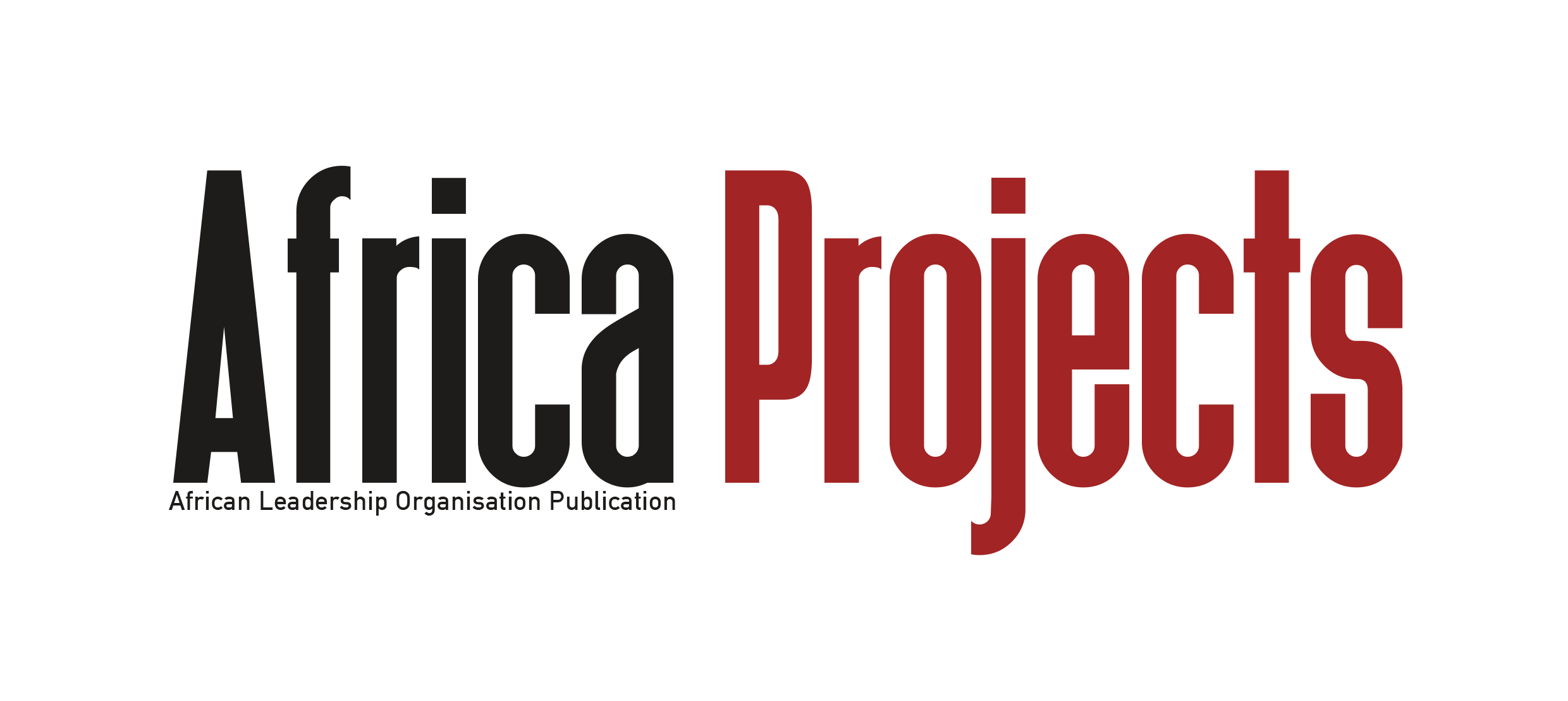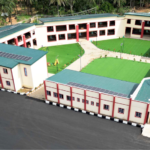- Home
- Features
- Startup Zone
- Projects
- Policies
- Shop
- Policies
- Projects
- Startup Zone
- Country Spotlight
- Analysis
- Tech
- Policies
- Projects
- Startup Zone
- Country Spotlight
- Analysis
- More
- Beyond the Kalashnikov: Africa’s Shift Toward Technology-Driven Warfare
- Afrail Express: Uniting a Continent on Rails
- AFRICA’S ENERGY CORRIDORS: CONNECTING POWER, PEOPLE, AND PROSPERITY
- Startup Lions Campus: Empowering Kenya’s Digital Generation
- L’Art de Vivre’s Le Paradis de Mahdia: Tunisia’s Model for Sustainable Luxury
- The Lobito Corridor: Rewiring Africa’s Trade Arteries Through Strategic Infrastructure
- AFRICA’S GREEN ENERGY TRANSITION: A BEACON OF HOPE FOR CLIMATE ACTION
- Dangote Refinery: Showcasing Africa’s Project Success Story
- AFRICA GREEN ECONOMY: ALL YOU NEED TO KNOW
- The Most Important Amicus Brief in the History of the World
- The Rise of Indigenous UAVs: Africa’s Drone Capabilities in Warfare and Surveillance
- AFRICA’S LARGEST OIL PRODUCERS: A COMPREHENSIVE OVERVIEW
- Beyond the Kalashnikov: Africa’s Shift Toward Technology-Driven Warfare
- Afrail Express: Uniting a Continent on Rails
- AFRICA’S ENERGY CORRIDORS: CONNECTING POWER, PEOPLE, AND PROSPERITY
- Startup Lions Campus: Empowering Kenya’s Digital Generation
- L’Art de Vivre’s Le Paradis de Mahdia: Tunisia’s Model for Sustainable Luxury
- The Lobito Corridor: Rewiring Africa’s Trade Arteries Through Strategic Infrastructure
- AFRICA’S GREEN ENERGY TRANSITION: A BEACON OF HOPE FOR CLIMATE ACTION
- Dangote Refinery: Showcasing Africa’s Project Success Story
- AFRICA GREEN ECONOMY: ALL YOU NEED TO KNOW
- The Most Important Amicus Brief in the History of the World
- The Rise of Indigenous UAVs: Africa’s Drone Capabilities in Warfare and Surveillance
- AFRICA’S LARGEST OIL PRODUCERS: A COMPREHENSIVE OVERVIEW
- Beyond the Kalashnikov: Africa’s Shift Toward Technology-Driven Warfare
- Afrail Express: Uniting a Continent on Rails
- AFRICA’S ENERGY CORRIDORS: CONNECTING POWER, PEOPLE, AND PROSPERITY
- Startup Lions Campus: Empowering Kenya’s Digital Generation
- L’Art de Vivre’s Le Paradis de Mahdia: Tunisia’s Model for Sustainable Luxury
- The Lobito Corridor: Rewiring Africa’s Trade Arteries Through Strategic Infrastructure
- Startup Zone
Top Insights
Women Who Build Nations: Female Engineers And Ministers Driving Africa’s Mega-Projects
The women featured in this article are role models and inspirations, showing others that with hard work, determination, and passion, anything is possible.

Africa is experiencing a surge in mega-projects, from infrastructure development to economic initiatives, and women are playing a vital role in shaping the continent’s physical and economic landscape. Female engineers and ministers are breaking down barriers and pushing boundaries, driving progress and innovation in various fields. In this article, we will highlight the stories of women who are building nations and transforming Africa’s future.
Women have long been underrepresented in Science Technology Engineering and Mathematics fields and leadership positions, but a new generation of female engineers and ministers is changing the narrative. These women are not only breaking down barriers but also paving the way for others to follow. They are driven by a passion for innovation, a commitment to excellence, and a desire to make a difference.
FEMALE ENGINEERS IN AFRICA: BREAKING BARRIERS AND DRIVING INNOVATION
Many talented female engineers are making significant contributions to the continent’s development. These women are breaking barriers and pushing boundaries in various fields, from engineering and technology to policy and leadership, and entrepreneurship. In this article, we will highlight some examples of female engineers in Africa and their contributions to the continent’s development.
SOME FEMALE ENGINEERS IN AFRICA
In Northern Africa, women like Tyseer Aboulnasr, an Egyptian electrical engineer and former Dean of the Faculty of Applied Sciences at the University of British Columbia School of Engineering, are making significant contributions to the field of engineering. Akissa Bahri, a Tunisian agricultural engineer, is another example of a woman who has made a positive impact in her field. In Eastern Africa, women like Nzambi Matee, a Kenyan civil engineer who founded Gjenge Makers, a company that turns plastic waste into bricks, are driving innovation and sustainability. Germaine Kamayirese, a Rwandan electromechanical engineer and Minister of State for Infrastructure for Energy, Water, and Sanitation, is another example of a woman who is making a difference in her community.
DRIVING INNOVATION AND SUSTAINABILITY
In Southern Africa, women like Veliswa Boya, a South African cloud engineer and senior developer advocate at Amazon Web Services, are driving innovation and technological advancement. Naadiya Moosajee, a South African civil engineer and co-founder of WomHub, is another example of a woman who is supporting high-growth female founders in STEM. In Western Africa, women like Funke Opeke, a Nigerian electrical engineer and founder of One Main Cable Company, are driving technological advancement and providing communication services and network solutions. Lucy Quist, a Ghanaian-British electrical engineer and business executive, is another example of a woman who has made significant contributions to the field of engineering.
EMPOWERING WOMEN AND GIRLS
The contributions of these female engineers are not only transforming the continent but also inspiring and empowering women and girls to pursue careers in STEM fields. By providing role models and mentors, these women are helping to create a more inclusive and diverse engineering community. Their achievements are a testament to the impact that women can have in STEM fields and leadership positions.
Only recently, the Nigerian government announced plans to empower over ten million women and girls by 2027 in the areas of science, technology, engineering, and innovation.
Nigeria’s Minister of Women Affairs, Imaan Sulaiman-Ibrahim, who made the disclosure during the launch of the “DELT HER” initiative, designed to encourage women and girls to embrace engineering and technology. She described the move as a strategic national commitment towards women empowerment.
Female engineers in Africa are making significant contributions to the continent’s development and driving innovation and sustainability. Their achievements are inspiring and empowering women and girls to pursue careers in STEM fields, and their legacy will be felt for generations to come. By highlighting their stories and achievements, we can promote diversity and inclusion in engineering and technology and support the next generation of female engineers in Africa.
MINISTERS DRIVING POLICY
Female ministers in Africa are playing a vital role in shaping policy and driving development across the continent. These women are leaders in their respective fields, working to create positive change and promote economic growth, social justice, and human development. From education and health to infrastructure and technology, female ministers are driving policy initiatives that are transforming the lives of millions of people.
Examples of Female Ministers in Africa
There are many examples of female ministers in Africa who are making a significant impact. Women like Najla Bouden, the first female Prime Minister of Tunisia, are breaking down barriers and pushing boundaries in leadership. Other examples include Aïchatou Mindaoudou, a Nigerien politician who served as the African Union’s Commissioner for Peace and Security, and Ursula Owusu-Ekuful, the Minister for Communications in Ghana, who is driving innovation and technological advancement. These women are role models and inspirations, showing that with hard work, determination, and passion, anything is possible.
Driving Change and Promoting Development
The contributions of female ministers in Africa are driving change and promoting development across the continent. They are working to create a more inclusive and equitable society, where everyone has access to opportunities and resources. By promoting policy initiatives that support education, health, and economic growth, female ministers are helping to build a brighter future for Africa and its people. Their leadership and vision are critical to the continent’s development, and their impact will be felt for generations to come.
OVERCOMING CHALLENGES
Despite the challenges they face, women in STEM fields and leadership positions are thriving. They are overcoming obstacles, pushing boundaries, and achieving great things. These women are role models and inspirations, showing others that with hard work, determination, and passion, anything is possible.
MENTORSHIP AND SUPPORT
Mentorship and support are critical to the success of women in STEM fields and leadership positions. Many of the women featured in this article have benefited from mentorship and support, which has helped them navigate challenges and achieve their goals. They are also paying it forward, mentoring and supporting others who are just starting out.
DIVERSITY AND INCLUSION
Diversity and inclusion are essential to driving innovation and progress in Africa. Women bring unique perspectives and experiences to the table, which are critical to solving complex problems and developing innovative solutions. By promoting diversity and inclusion, we can unlock the full potential of Africa’s talent and drive economic growth and development.
The women featured in this article are role models and inspirations, showing others that with hard work, determination, and passion, anything is possible. They are breaking down barriers, pushing boundaries, and achieving great things. These women are not only building nations but also shaping the future of Africa.
The are transforming Africa, driving progress, innovation, and economic growth. They are working to create a brighter future for the continent and its people. By highlighting their stories and achievements, we can inspire others to follow in their footsteps.
The future of Africa looks bright, with women playing a critical role in shaping the continent’s physical and economic landscape. By empowering women, promoting diversity and inclusion, and providing opportunities and support, we can unlock the full potential of Africa’s talent and drive economic growth and development.
Indeed, women are playing a vital role in driving Africa’s development, from engineering and infrastructure development to policy and leadership. By highlighting their stories and achievements, we can inspire others to follow in their footsteps. These women are not only building nations but also shaping the future of Africa.
Recent Posts
Related Articles
Cutting-Edge Environmental Conservation Projects and Their Champions
Environmental conservation has entered a decisive era. As climate change accelerates, biodiversity...
ByafricaprojectJanuary 28, 2026Clean Water Access Projects Improving Lives in Underserved Regions
Access to clean and reliable water remains one of Africa’s most pressing...
ByafricaprojectJanuary 19, 2026Industrial Corridors Attracting Global Investors
Across Africa, industrial corridors are emerging as strategic economic arteries driving industrialization,...
ByafricaprojectJanuary 16, 2026The Engineers Behind Africa’s Tallest and Most Iconic Towers
Across Africa, the rise of tall and iconic towers is reshaping skylines...
ByafricaprojectJanuary 15, 2026












